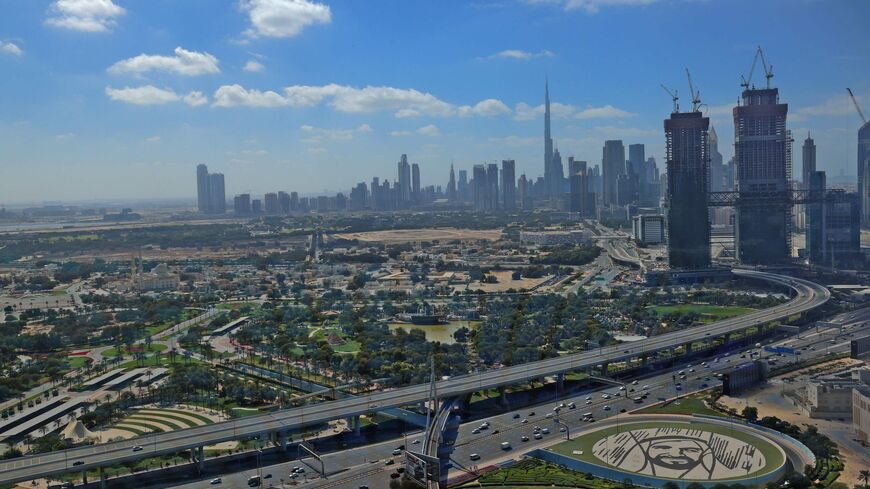BEIRUT — The death of a Lebanese man in Emirati custody earlier this month has sparked controversy in Beirut, as his family attempts to retrieve the body while United Arab Emirates (UAE) officials deny any wrongdoing in the case.
The spat led to a call between the foreign ministers of Lebanon and the United Arab Emirates over the weekend.
This past March, UAE authorities arrested Lebanese citizen Ghazi Ezzedine, 55, along with eight other people including his two brothers, on unknown charges, according to the human rights organization Amnesty International.
Local reports say Ezzedine died in police custody on May 4 and was buried in the UAE. The family was only notified days later after his son, Fadel, was asked to identify his body at a cemetery in the UAE. He was only allowed to see his father’s face, while the body was kept covered.
The case of Ezzedine, a Shiite who had been working in real estate in the Gulf nation for 30 years, raised questions about the circumstances of his death. In a statement last week, a committee of family members of Lebanese citizens detained in the UAE claimed that Ezzedine died under torture.
“If it is found that his death was indeed unlawful, they must ensure that all those suspected of torture and unlawful killing, including those with command responsibility, are held accountable,” Sima Watling, a researcher with Amnesty International, told The Associated Press last Friday.
For its part, the Euro-Mediterranean Human Rights Monitor called for an “immediate and transparent investigation” into the death of Ezzedine.
“The UAE authorities had previously been involved in the illegal detention of foreigners, investigating them and detaining them in inhumane conditions, subjecting them to psychological and sometimes physical torture, and deporting them from the country under broad and unfair security pretexts,” Euro-Med Monitor added in a press statement released last Thursday.
On Monday, the families of citizens detained in the UAE held a protest in front of the Lebanese Foreign Ministry in Beirut, calling on the Lebanese state to intervene and release all those in Emirati custody. They also demanded that the circumstances surrounding Ezzedine’s death be revealed.
اعتصام لعائلات معتقلين لبنانيين في #الإمارات، أمام وزارة الخارجية في #بيروت، للمطالبة بالإفراج عنهم والكشف عن ملابسات مقتل #غازي_عزالدين في السجون الإماراتية في 4 أيار.
ويعتقد أن عزالدين تعرض للتعذيب، بخاصة أن السلطات الإماراتية رفضت تسليم جثته إلى عائلته
من صفحة @mazehalii pic.twitter.com/xNcXb07fTA— أخبار الساحة (@Akhbaralsaha) May 15, 2023
The Lebanese Foreign Ministry said in a statement on Saturday that Lebanon’s ambassador to Abu Dhabi, Fouad Dandan, received a signed letter from Ezzedine’s family saying he died due to health problems.
During Saturday's phone call, Emirati Foreign Minister Abdullah bin Zayed Al Nahyan told his Lebanese counterpart, Abdallah Bouhabib, that Ezzedine’s family can either leave or stay in the UAE, according to the same ministry statement.
However, the fate of his body remains unknown amid reports that Emirati authorities have refused to release him to his family.
Dozens of Lebanese nationals, mostly Shiite Muslims, have been detained in the UAE in the past years over their alleged links to the Iran-backed Lebanese militant group Hezbollah, designated a terrorist organization.
In 2019, an Emirati court handed a life sentence to four Lebanese men and sentenced two others to 10 years in prison on charges of forming a terrorist cell linked to Hezbollah to carry out attacks against vital facilities in the Gulf nation, according to UAE authorities.
Amnesty International said at the time that “the absence of basic requirements of a fair trial — such as having access to a lawyer — strips today’s verdict of any reliability or credibility.”
In March 2016, the Gulf Cooperation Council (GCC) designated Hezbollah a terrorist group over its “incitement in Syria, Yemen and Iraq.” Gulf countries have long been major donors to Lebanon. But this Gulf support has waned in past years amid the rising influence of Hezbollah in the small Mediterranean country.








